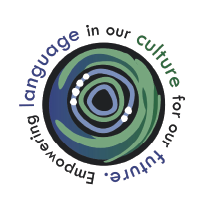Revitalise, Maintain and Communicate
The fundamental right of Torres Strait and Aboriginal people to revitalise, maintain and communicate in traditional languages is specifically underpinned by the following international declarations.
United Nations Declaration on the Rights of Indigenous Peoples
- Indigenous peoples have the right to revitalise, use, develop and transmit to future generations their histories, languages, oral traditions, philosophies, writing systems and literatures, and to designate and retain their own names for communities, places and persons.
- States shall take effective measures to ensure this right is protected and also to ensure that Indigenous peoples can understand and be understood in political, legal and administrative proceedings, where necessary through the provision of interpretation or by other appropriate means.
- Indigenous peoples have the right to establish and control their educational systems and institutions providing education in their own languages, in a manner appropriate to their cultural methods of teaching and learning.
- Indigenous individuals, particularly children, have the right to all levels and forms of education of the State without discrimination.
- States shall, in conjunction with Indigenous peoples, take effective measures, in order for Indigenous individuals, particularly children, including those living outside their communities, to have access, when possible, to an education in their own culture and provided in their own language.
- Indigenous peoples have the right to establish their own media in their own languages and to have access to all forms of non-Indigenous media without discrimination.
- States shall take effective measures to ensure that State-owned media duly reflect Indigenous cultural diversity. States, without prejudice to ensuring full freedom of expression, should encourage privately-owned media to adequately reflect Indigenous cultural diversity.
- Indigenous peoples have the right to maintain, control, protect and develop their cultural heritage, traditional knowledge and traditional cultural expressions, as well as the manifestations of their sciences, technologies and cultures, including human and genetic resources, seeds, medicines, knowledge of the properties of fauna and flora, oral traditions, literatures, designs, sports and traditional games and visual and performing arts. They also have the right to maintain, control, protect and develop their intellectual property over such cultural heritage, traditional knowledge, and traditional cultural expressions.
- In conjunction with Indigenous people, States shall take effective measures to recognize and protect the exercise of these rights.
UNESCO Universal Declaration on Linguistic Rights
Considering that invasion, colonisation, occupation and other instances of political, economic or social subordination often involve the direct imposition of a foreign language or, at the very least, distort perceptions of the value of languages and give rise to hierarchical linguistic attitudes which undermine the language loyalty of speakers; and considering that the languages of some peoples which have attained sovereignty are consequently immersed in a process of language substitution as a result of a policy which favours the language of former colonial or imperial powers.
In the belief that a Universal Declaration on Linguistic Rights is required in order to correct linguistic imbalances with a view to ensuring the respect and full development of all languages and establishing the principles for a just and equitable linguistic peace throughout the world as a key factor in the maintenance of harmonious social relations.
Other Declarations
Other relevant international declarations include:
- United Nations Declaration of Human Rights.
- United Nations International Covenant on Civil and Political Rights.
- UNESCO Convention on the Protection and Promotion of the Diversity of Cultural Expressions.
- UNESCO Convention for the Safeguarding of Intangible Cultural Heritage.
- UNESCO Convention Against Discrimination in Education.
- United Nations Declaration of the Rights of the Child.




